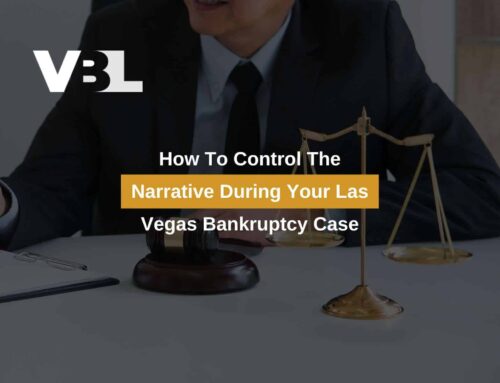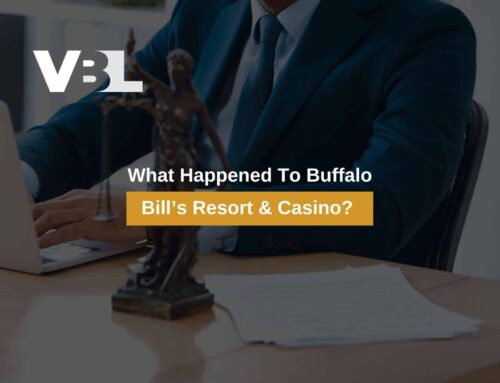Utility Bills in a Nevada Bankruptcy: Handling, Consequences, & Discharge
Filing for bankruptcy in Nevada can provide individuals with a path to financial relief and a fresh start. When considering bankruptcy, it’s essential to understand how utility bills are handled, what might occur if you don’t pay them, the types of utilities typically included in a bankruptcy filing, which utility companies are frequently part of bankruptcy filings in Nevada, and whether overdue utility bills can be discharged through bankruptcy. This comprehensive discussion will delve into these topics, offering insights and guidance for those facing financial challenges in Las Vegas and throughout Nevada.

Utility Bills and Bankruptcy: An Overview
Utility bills are a part of daily life and include essential services such as electricity, water, gas, telecommunications (phone and internet), and waste disposal. When individuals experience financial hardships and consider bankruptcy, these utility bills often become a significant concern. In Nevada, utility bills are categorized as unsecured debts, similar to credit card debt and medical bills. Unsecured debts are those not tied to collateral like a house or car and can be eligible for discharge in bankruptcy.
Consequences of Not Paying Utility Bills in Las Vegas
Failing to pay utility bills in Las Vegas and throughout Nevada can lead to various consequences, each of which can exacerbate financial difficulties:
- Service Disconnection: Utility providers may disconnect services for non-payment. This can leave individuals without essential utilities, including electricity, water, gas, and telecommunications, affecting their quality of life.
- Late Fees and Penalties: Utility companies often impose late fees and penalties for overdue payments. These additional charges can significantly increase the overall amount owed.
- Credit Impact: Unpaid utility bills may be reported to credit bureaus, negatively impacting credit scores and making it challenging to obtain credit in the future.
- Collections and Lawsuits: Utility providers may send unpaid debts to collections agencies, leading to collection efforts, including phone calls and letters. In some cases, utility companies may take legal action, resulting in lawsuits, wage garnishments, or liens on property.
- Reconnection Costs: If services are disconnected due to non-payment, reconnecting them may require payment of past due amounts, security deposits, or other fees, creating an additional financial burden.
Types of Utilities Included in a Bankruptcy Filing in Nevada
In a Nevada bankruptcy filing, various types of utilities may be included as unsecured debts. Common examples of utilities that individuals may include in their bankruptcy petitions in Las Vegas and across the state include:
- Electricity: The cost of electricity to power homes and businesses is a significant utility expense.
- Water: Water bills encompass the cost of providing clean and safe water for household use, including drinking, cooking, and bathing.
- Gas: Natural gas or propane bills are essential for heating and cooking in many households.
- Telecommunications: This category includes services such as phone, internet, and cable television, which are crucial for communication and entertainment.
- Trash and Sewer: Waste disposal and sewer services are vital for maintaining sanitation and hygiene in homes and businesses.
- Heating and Cooling: In Nevada’s climate, heating and cooling costs, including air conditioning, are essential utilities, especially during extreme weather conditions.
- Waste Management: Commercial properties may also have waste management and dumpster rental expenses, which can be included in a bankruptcy filing.
The inclusion of specific utilities in a bankruptcy filing depends on individual circumstances and priorities. Some individuals may choose to include all outstanding utility bills, while others may prioritize certain debts based on their immediate needs.
Utility Companies Frequently Included in Bankruptcy Filings in Nevada
In Nevada, several utility companies are commonly encountered in bankruptcy filings due to their widespread service coverage and customer base. While the inclusion of specific utility companies may vary, the following are some of the providers often associated with bankruptcy filings in the state:
- NV Energy: As Nevada’s primary electricity provider, NV Energy serves a large portion of the state’s residents and businesses. It is one of the most frequently included utility companies in bankruptcy filings in Nevada.
- Las Vegas Valley Water District: This utility company provides water services to the Las Vegas Valley and surrounding areas, making it a common inclusion in bankruptcy cases in the region.
- Southwest Gas Corporation: Southwest Gas offers natural gas services to many residents and businesses in Nevada, including the Las Vegas metropolitan area.
- Cox Communications: As a leading telecommunications provider, Cox Communications provides internet, phone, and cable television services to numerous customers in Nevada.
- CenturyLink: CenturyLink is another significant telecommunications company serving both residential and commercial customers with phone and internet services.
- Republic Services: This waste management company offers trash collection and disposal services to various communities and businesses in Nevada.
The specific utility providers included in a bankruptcy filing can vary based on individual circumstances and the utility services an individual or business uses.
Discharging Overdue Utility Bills After a Bankruptcy Filing in Nevada
One of the primary benefits of filing for bankruptcy is the potential discharge of certain debts, including overdue utility bills. The discharge means that individuals are no longer legally obligated to repay these debts. In Nevada, utility bills are generally classified as unsecured debts and can be discharged through bankruptcy provided that certain criteria are met:
- Chapter 7 Bankruptcy: In a Chapter 7 bankruptcy, often referred to as liquidation bankruptcy, unsecured debts, including utility bills, are typically discharged. Chapter 7 bankruptcy allows for a relatively swift resolution, with most cases being completed within a few months.
- Chapter 13 Bankruptcy: Chapter 13 bankruptcy involves creating a repayment plan that spans three to five years to address various debts, including utility bills. While the debts may not be immediately discharged, they are included in the repayment plan, allowing individuals to manage and gradually pay off their utility debts.
It’s essential to consult with an experienced bankruptcy attorney in Las Vegas, Henderson, or Reno, Nevada to determine the best bankruptcy chapter for your specific circumstances and to ensure that you meet the necessary eligibility criteria for discharge.
Seeking Guidance from Nevada Bankruptcy Attorney Erik Severino
Navigating bankruptcy and understanding the treatment of utility bills in Las Vegas and throughout Nevada can be complex and challenging. To make informed decisions about your financial future and legal options, it is highly advisable to consult with an experienced bankruptcy attorney.
Nevada Bankruptcy Attorney Erik Severino and the team at My Las Vegas Lawyers, PLLC, specialize in bankruptcy law and have extensive experience helping individuals and businesses in Las Vegas and across Nevada achieve debt relief. They can provide you with personalized guidance, answer your questions, and assist you in starting your bankruptcy journey.
One notable advantage of working with My Las Vegas Lawyers, PLLC, is their commitment to assisting clients in initiating their bankruptcy cases with no money down. This can be a significant relief for individuals facing financial hardship, as it allows them to obtain professional legal support without immediate financial burdens.
For a free consultation and to discuss your specific situation with experienced Las Vegas Bankruptcy Lawyers you can call 702-370-0155. During this consultation, you can gain valuable insights into your options and receive guidance on the best course of action to address your financial challenges effectively.
In conclusion, utility bills in a Nevada bankruptcy are generally considered unsecured debts and can be discharged under the appropriate bankruptcy chapter. It is crucial for individuals facing financial difficulties to understand the consequences of not paying utility bills, the types of utilities that can be included in a bankruptcy filing, and the utility companies frequently associated with bankruptcy cases in Nevada. Contact us today, seeking legal counsel from experienced professionals like Nevada Bankruptcy Attorney Erik Severino and My Las Vegas Lawyers, PLLC, can provide invaluable support and help individuals achieve debt relief while starting their bankruptcy with no money down.

Las Vegas Bankruptcy Lawyers
LAS VEGAS
7251 W Lake Mead BLVD #300
Las Vegas, NV89128
Office: 702-879-2499
Email: [email protected]
HENDERSON
1489 W Warm Springs Rd. Ste 110
Henderson, NV 89014
Email: [email protected]
Additional Information at:
Phoenix Bankruptcy Lawyer
Phoenix DUI Lawyer
Chandler Bankruptcy Lawyer
Vegas Zero Down Bankruptcy Attorney
Gilbert Bankruptcy Lawyers
Arizona Zero Down DUI
AZ Bankruptcy Lawyer
















